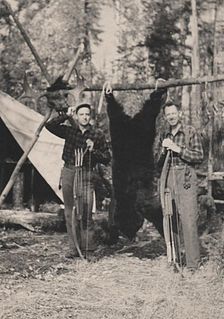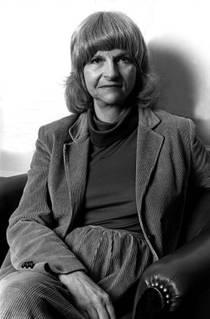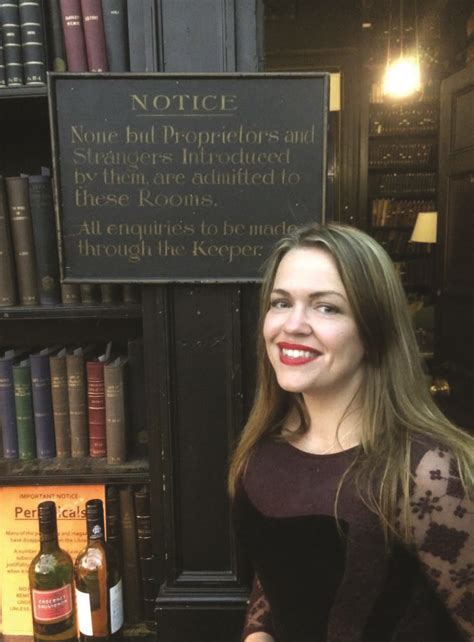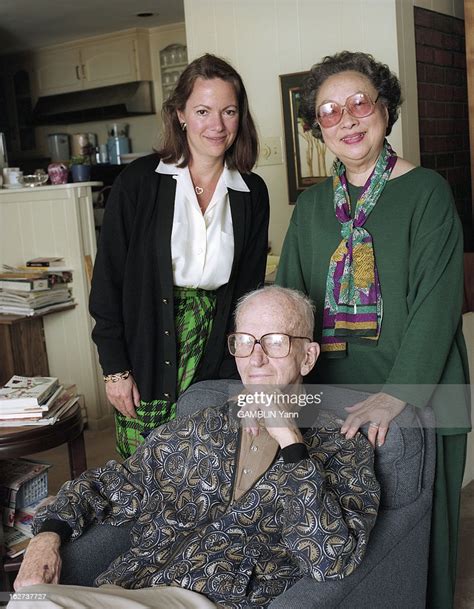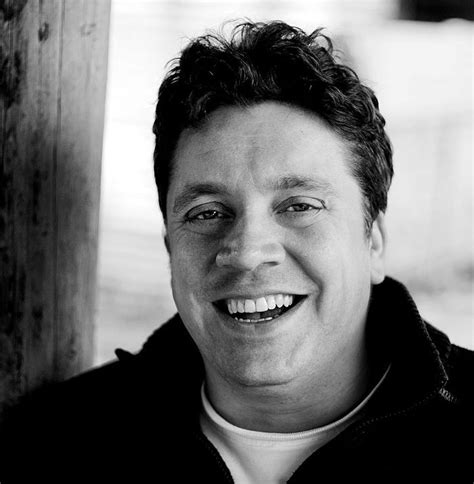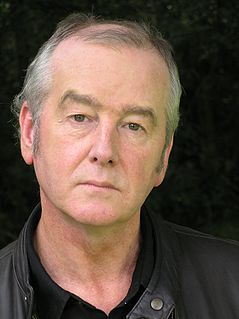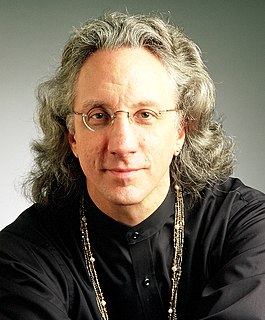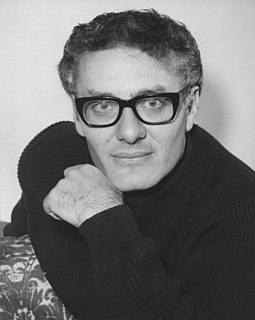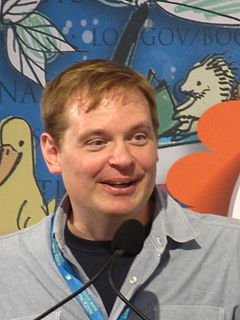Top 1001 Tales Quotes & Sayings - Page 16
Explore popular Tales quotes.
Last updated on December 22, 2024.
Most Muggles lived in a world defined by the limits of what you could do with cars and telephones. Even though Muggle physics explicitly permitted possibilities like molecular nanotechnology or the Penrose process for extracting energy from black holes, most people filed that away in the same section of their brain that stored fairy tales and history books, well away from their personal realities: Long ago and far away, ever so long ago.
Evil isn't beautiful on its own. You know?' 'Well, good people are sometimes ugly-' Blanche said at last. 'I don't know about that. Not really,' Bear shook his head. 'If the good's there, and you look for it, you'll see it in some way.' 'I think Bear is right,' Rose said decidedly. 'Fairy tales teach you that. No one who's really good ever stays ugly. It's always a disguise.
I want to tell women that you need to love yourself and make yourself a priority. It's only when you are happy yourself, can you make everyone else around you happy. I am still a dreamer and still believe in fairy tales, but there is only that much one should give another person. You need to keep something for yourself.
I write at eighty-five for the same reasons that impelled me to write at forty-five; I was born with a passionate desire to communicate, to organize experience, to tell tales that dramatize the adventures which readers might have had. I have been that ancient man who sat by the campfire at night and regaled the hunters with imaginative recitations about their prowess. The job of an apple tree is to bear apples. The job of a storyteller is to tell stories, and I have concentrated on that obligation.
If asked to sketch a picture of the typical archer I would be hard put. They seem to come in all shapes, sizes, colors and backgrounds. Inwardly they seem to have in common a love for the outdoors, a reverence for wildlife, and a close tie with history. There is nothing they seem to enjoy more than telling tall tales around a campfire or talking about archery to others. It would be difficult to find a more interesting group of people.
One might get the impression that I recommend a new methodology which replaces induction by counterinduction and uses a multiplicity of theories, metaphysical views, fairy tales, instead of the customary pair theory/observation. This impression would certainly be mistaken. My intention is not to replace one set of general rules by another such set: my intention is rather to convince the reader that all methodologies, even the most obvious ones, have their limits.
Kids know they can't make it alone, yet at the same time, built into each one of us, is a survival ethic. It says, "Nobody cares and you have to look out for yourself and if you don't, you'll die." These two things work against each other. I think most kids are very frightened of their parents, and that's what all fairy tales reflect: Parents will fail you and you'll be left on your own. But, of course, everything comes out right in the end and the parents take you back.
For who can wonder that man should feel a vague belief in tales of disembodied spirits wandering through those places which they once dearly affected, when he himself, scarcely less separated from his old world than they, is for ever lingering upon past emotions and bygone times, and hovering, the ghost of his former self, about the places and people that warmed his heart of old?
Childhood is less clear to me than to many people: when it ended I turned my face away from it for no reason that I know about, certainly without the usual reason of unhappy memories. For many years that worried me, but then I discovered that the tales of former children are seldom to be trusted. Some people supply too many past victories or pleasures with which to comfort themselves, and other people cling to pains, real and imagined, to excuse what they have become.
In this life you have to be your own hero. By that I mean you have to win whatever it is that matters to you by your own strength and in your own way. Like it or not, you are alone in a forest, just like all those fairy tales that begin with a hero who’s usually stupid but somehow brave, or who might be clever, but weak as a straw, and away he goes (don’t worry about the gender), cheered on by nobody, via the castles and the bears, and the old witch and the enchanted stream, and by and by (we hope) he’ll find the treasure.
Over the Christmas period, I spent time with both Bob Hawke and Paul Keating, and you listen to stories and tales of how hard it can be when it's really hard, and I think we easily all talk ourselves into the proposition that it's never been as hard as this. Well it's been hard in the past. It's been really hard. So you keep doing it and, the more you do it, the more you gain strength and confidence that you can do it.
My writing has to excite people and depict or include their experiences. That's part of my process - to go out and interact with people. It's very much like an archival process. I understand that the Brothers Grimm would go out and get people talking so they could document folk tales that weren't being documented any other way. I try to offer a little bit of myself - some experience from my life that evokes stories in other people.
Love's arms were wreathed about the neck of Hope,
And Hope kiss'd Love, and Love drew in her breath
In that close kiss and drank her whisper'd tales.
They said that Love would die when Hope was gone.
And Love mourn'd long, and sorrow'd after Hope;
At last she sought out Memory, and they trod
The same old paths where Love had walked with Hope,
And Memory fed the soul of Love with tears.
There yet remains but one concluding tale, And then this chronicle of mine is ended - Fulfilled, the duty God ordained to me, A sinner. Not without purpose did the Lord, Put me to witness much for many years, And educate me in the love of books. One day some indefatigable monk, Will find my conscientious, unsigned work; Like me, he will light up his ikon-lamp, And, shaking from the scroll the age-old dust, He will transcribe these tales in all their truth.
We are not a warlike people. Nor is our history filled with tales of aggressive adventures and imperialism, which might come as a shock to some of the placard painters in our modern demonstrations. The lesson of Vietnam, I think, should be that never again will young Americans be asked to fight and possibly die for a cause unless that cause is so meaningful that we, as a nation, pledge our full resources to achieve victory as quickly as possible.
At the Neighborhood Playhouse School of Theatre, Sanford Meisner said, 'When you go into the professional world, at a stock theatre somewhere, backstage, you will meet an older actor, someone who has been around awhile. He will tell you tales and anecdotes, about life in the theatre. He will speak to you about your performance and the performances of others, and he will generalize to you, based on his experience and his intuitions, about the laws of the stage. Ignore this man!'
Like an explorer returned from a distant planet or another dimension, Suki Kim has many extraordinary tales to tell, among them how different--and how awful--life is for those who live in North Korea. The devil is in the details here, for her gritty narrative focuses on everyday events to reveal how repression shapes daily life, even for the most privileged. Yet Kim also bears witness to that part of the human soul that no oppressor can ever claim.
The appeal of the spectrally macabre is generally narrow because it demands from the reader a certain degree of imagination and a capacity for detachment from every-day life. Relatively few are free enough from the spell of the daily routine to respond to rappings from outside, and tales of ordinary feelings and events, or of common sentimental distortions of such feelings and events, will always take first place in the taste of the majority; rightly, perhaps, since of course these ordinary matters make up the greater part of human experience.
If you want to become a man of letters and perhaps write some Histories one day, you must also lie and invent tales, otherwise your History would become monotonous. But you must act with restraint. The world condemns liars who do nothing but lie, even about the most trivial things, and it rewards poets, who lie only about the greatest things.
Chyerti—that’s us, demons and devils, small and big—are compulsive. We obsess. It’s our nature. We turn on a track, around and around; we march in step; we act out the same tales, over and over, the same sets of motions, while time piles up like yarn under a wheel. We like patterns. They’re comforting. Sometimes little things change—a car instead of a house, a girl not named Yelena. But it’s no different, not really. Not ever.
The great subversive works of children's literature suggest that there are other views of human life besides those of the shopping mall and the corporation. They mock current assumptions and express the imaginative, unconventional, noncommercial view of the world in its simplest and purest form. They appeal to the imaginative, questioning, rebellious child within all of us, renew our instinctive energy, and act as a force for change. This is why such literature is worthy of our attention and will endure long after more conventional tales have been forgotten.
The store of fairy tales, that blue chamber where stories lie waiting to be rediscovered, holds out the promise of just those creative enchantments, not only for its own characters caught in its own plotlines; it offers magical metamorphoses to the one who opens the door, who passes on what was found there, and to those who hear what the storyteller brings. The faculty of wonder, like curiosity can make things happen; it is time for wishful thinking to have its due.
I loved [fairy stories] so, and my mother weighed down by grief had given up telling me them. At Nohant I found Mmes. d'Ardony's and Perrault's tales in old editions which became my chief joy for five or six years ... I've never read them since, but I could tell each tale straight through, and I don't think anything in all one's intellecutal life can be compared to these delights of imagination.
There are stories within stories, whispered in the quiet of the night, shouted above the roar of the day, and played out between lovers and enemies, strangers and friends. But all are fragile things made of just twenty-six letters arranged and re-arranged to form tales and imaginings which will dazzle your senses, haunt your imagination and move you to the very depths of your soul.
Teaching is a sacred art. This is why the noblest druid is not the one who conjures fires and smoke but the one who brings the news and passes on the histories. The teacher, the bard, the singer of tales is a freer of men's minds and bodies, especially when he roams without allegiance to one chieftain or another. But he is also a danger to the masters if he insists upon telling the truth. The truth will inevitably cause tremors in those who cling to power without honoring justice.
Independently of the curious circumstance that such tales should be found existing in very different countries and languages, which augurs a greater poverty of human invention than we would have expected, there is also a sort of wild fairy interest in them, which makes me think them fully better adapted to awaken the imagination and soften the heart of childhood than the good-boy stories which have been in later years composed for them.
She had sacrificed her childhood to save her brothers; she loved her family above all else, and her spirits yearned to return home once more, to the wild forest and the land of mystic tales and ancient spirits whence he had taken her. That was the place of her heart, and if he loved her, he must let her go.
I had always been a great talker and teller of tales. 'You should put a lock on that tongue of yours. It's long enough and sharp enough to slit your own throat,' our guardian warned me, the night before I left home to go to the royal court at Versailles ... I just laughed. 'Don't you know a woman's tongue is her sword? You wouldn't want me to let my only weapon rust, would you?
Seventeen years after its intial release, The Empire Strikes Back is still as thrilling and involving as ever. Because of the high quality of the original product, it doesn't show a hint of dating. Neither [Star Wars Episode IV: A New Hope nor Star Wars Episode VI: Return of the Jedi] were able to match the narrative scope of Empire, which today remains one of the finest and most rousing science fiction tales ever committed to the screen.
Awarded the Nobel Peace Prize in 1986, Elie Wiesel is also the author of more than 40 books. As relevant as anything to today's discussion are the insights into the Biblical texts that are contained in his lectures and books. They include Messengers of God [1976], Five Biblical Portraits [1978] and his just-published Wise Men and Their Tales - Portraits of Biblical, Talmudic and Hasidic Masters.
If we assiduously cultivate our powers of exaggeration, perhaps we, too, shall obtain the Paradise of Liars. And there Raphael shall paint for us scores and scores of his manifestly impossible pictures... and Shakespeare will lie to us of fabulous islands far past 'the still-vex'd Bermoothes,' and bring us fresh tales from the coast of Bohemia. For no one will speak the truth there, and we shall all be perfectly happy.
America is the wealthiest nation on Earth, but its people are mainly poor, and poor Americans are urged to hate themselves... It is in fact a crime for an American to be poor, even though America is a nation of poor. Every other nation has folk traditions of men who were poor but extremely wise and virtuous, and therefore more estimable than anyone with power and gold. No such tales are told by American poor. They mock themselves and glorify their betters.
Stories come from violence, they come from sex. They come from death. They come from the dark places that everyone has to go to, kind of wants to, or doesn't, but needs to deal with. If you raise a kid to think everything is sunshine and flowers, they're going to get into the real world and die. That's the reason fairy tales are so creepy, because we need to encapsulate these things, to inoculate ourselves against them, so that when we're confronted by the genuine horror that is day-to-day life we don't go insane.
Science tells us what we can know but what we can know is little and if we forget how much we cannot know we become insensitive of many things of very great importance. Theology, on the other hand induces a dogmatic belief that we have knowledge where in fact we have ignorance and by doing so generates a kind of impertinent insolence towards the universe. Uncertainty in the presence of vivid hopes and fears is painful, but must be endured if we wish to live without the support of comforting fairy tales.
I'm sure that there must have been times when you have read books or watched films and found yourself secretly wishing for the villain to win. Why? Isn't that against the rules by which our society lives? Why should you feel this way? It's simple, really; the villain is the true hero of these tales, not the well-intentioned moron who somehow foils their diabolical scheme. The villain get's all the best lines, has the best costumes, has unlimited power and wealth- why on earth would anyone not want to be the villain?
I've always loved fairy tales. I think they perhaps led me to theater rather than the other way around. As a child I wanted to invent a machine that could record my dreams, so I could watch them in the morning; or hire someone to draw the things I had in my head, because I knew I didn't have the skill to do it myself. Theater is that machine. I can make these images come to life and actually walk around inside them for a while.
Oh, Black known and unknown poets, how often have your auctioned pains sustained us? Who will compute the lonely nights made less lonely by your songs, or by the empty pots made less tragic by your tales? If we were a people much given to revealing secrets, we might raise monuments and sacrifice to the memories of our poets, but slavery cured us of that weakness.
Eyes Tell Stories But do they know how to craft fiction? Do they know how to spin lies? His eyes swear forever, flatter with vows of only me. But are they empty promises? I stare into his eyes, as into a crystal ball, but I cannot find forever, only movies of yesterday, a sketchbook of today, dreams of a shared tomorrow. His eyes whisper secrets. But are they truths or fairy tales? I wonder if even he knows.
She finds tales everywhere, in grains of sand she picks up from the garden, in puffs of smoke that drift out from the chimneys of the village, in fragments of smooth timber or glass in the jetsam. She will ask them, "Where did you come from? How did you get here?" And they will answer her in voices very like her own, but with new lilts and squeaks and splashes in them that show they are their own.
Why are so many of us enspelled by myths and folk stories in this modern age? Why do we continue to tell the same old tales, over and over again? I think it's because these stories are not just fantasy. They're about real life. We've all encountered wicked wolves, found fairy godmothers, and faced trial by fire. We've all set off into unknown woods at one point in life or another. We've all had to learn to tell friend from foe and to be kind to crones by the side of the road. . . .
Though fairy tales end after ten pages, our lives do not. We are multi-volume sets. In our lives, even though one episode amounts to a crash and burn, there is always another episode awaiting us and then another. There are always more opportunities to get it right, to fashion our lives in the ways we deserve to have them. Don't waste your time hating a failure. Failure is a greater teacher than success.
You see these dictators up on their pedestals, surrounded by the bayonets of their soldiers and the truncheons of their police. They're afraid of words and thought. ... They make frantic efforts to bar our thoughts and words. ... A state of society where men may not speak their mind - where children denounce their parents to the police - where a businessman or small shopkeeper ruins his competitor by telling tales about his private opinion. Such a state of society cannot long endure if it is continually in contact with the healthy outside world.
When you think of Grimm's fairy tales, they are deeply, deeply psychological. They're so powerful, so bloody, and really, really disturbing. Think about five-year-olds reading that stuff. Even 'Little Red Riding Hood' is a really freaky story. Grandma is gobbled up by a wolf, and the wolf is going to eat the girl. That's scary stuff.
Serious skeptics, true believers, and seekers of every stripe will want to read Mitch Horowitz's vibrant, probing, and richly researched account of the impact of the positive-thinking movement on every aspect of American life today. Filled with a cast of remarkable characters and many lively tales, One Simple Idea is a readable, responsible examination of the limits and possibilities of mind-power as a source of constructive transformation.
It has been said, "History is written by the victors." I take this to mean we can make ourselves victorious by writing, and then rewriting our own stories. In a country and culture so dominated by media, by the manipulation of words and stories, telling the tales of people whose stories historically have not been told is a radical act and I believe an act that can change the world and help rewrite history.
Do you mean to say," asked Caspian, "that you three come from a round world (round like a ball) and you've never told me! It's really too bad for you. Because we have fairy-tales in which there are round worlds and I have always loved them … Have you ever been to the parts where people walk about upside-down?" Edmund shook his head. "And it isn't like that," he added. "There's nothing particularly exciting about a round world when you're there.
She always did like tales of adventure-stories full of brightness and darkness. She could tell you the names of all King Arthur's knights, and she knew everything about Beowulf and Grendel, the ancient gods and the not-quite-so-ancient heroes. She liked pirate stories, too, but most of all she loved books that had at least a knight or a dragon or a fairy in them. She was always on the dragon's side by the way.
What do you know about yourself? What are your stories? The ones you tell yourself, and the ones told by others. All of us begin somewhere. Though I suppose the truth is that we begin more than once; we begin many times. Over and over, we start our own tales, compose our own stories, whether our lives are short or long. Until at last all our beginnings come down to just one end, and the tale of who we are is done.
As a relentless gatherer of moments, I find that my favorite images, although grounded in the present, are like spirits shaped by memories. They whisper of fairy tales, poetry, and other lives, as each gesture connects with another and raises yet another from the dead. Shadows flicker on film to an inner melody as I navigate, camera at hand and at the speed of light, through unimaginable worlds - desperately trying to make sense of the joy and suffering before it all disappears.
The poet Muriel Rukeyser said the universe is composed of stories, not of atoms. The physicist Werner Heisenberg declared that the universe is made of music, not of matter. And we believe that if you habitually expose yourself to toxic stories and music, you could wind up living in the wrong universe, where it's impossible to become the gorgeous genius you were born to be. That's why we implore you to nourish yourself with delicious, nutritious tales and tunes that inspire you to exercise your willpower for your highest good.
One of the basic motifs in fairy tales is that you find the poor and unfortunate along the side of the road, and when they beg for help, if you give it to them, you end up succeeding. If you don't give it to them, you end up being turned into a frog or something. It's something that's been around for thousands of years, a concept that's been around for thousands of years.
It’s my own fault, really. For believing in fairy tales. Not that I ever mistook them for actual historical fact, or anything. But I did grow up believing that for every girl, there’s a prince out there somewhere. All she has to do is find him. Then it’s on with the happily ever after. So you can only imagine what happened when I found out. That my prince really IS one. A prince. No, I really mean it. He’s an actual PRINCE.
A woman once described a friend of hers as being such a keen listener that even the trees leaned toward her, as if they were speaking their innermost secrets into her listening ears. Over the years I’ve envisioned that woman’s silence, a hearing full and open enough that the world told her its stories. The green leaves turned toward her, whispering tales of soft breezes and the murmurs of leaf against leaf.
More wonderful than the lore of old men and the lore of books is the secret lore of the ocean. Blue, green, grey, white, or black; smooth, ruffled, or mountainous; that ocean is not silent. All my days I have watched it and listened to it, and I know it well. At first it told to me only the plain little tales of calm beaches and near ports, but with the years it grew more friendly and spoke of other things; of things more strange and more distant in space and time.
A serious adult story must be true to something in life. Since marvel tales cannot be true to the events of life, they must shift their emphasis towards something to which they can be true; namely, certain wistful or restless moods of the human spirit, wherein it seeks to weave gossamer ladders of escape from the galling tyranny of time, space, and natural law.
I HAVE no patience with the hypothesis occasionally expressed, and often implied, especially in tales written to teach children to be good, that babies are born pretty much alike, and that the sole agencies in creating differences between boy and boy, and man and man, are steady application and moral effort. It is in the most unqualified manner that I object to pretensions of natural equality. The experiences of the nursery, the school, the University, and of professional careers, are a chain of proofs to the contrary.
Worship isn't destructive, Martin. I know that. I don't. I only know it's the core of his life. What else has he got? He can hardly read. He knows no physics or engineering to make to world real for him. No paintings to show him how others have enjoyed it. No music except television jingles. No history except tales from a desperate mother. No friends. Not one kid to give him a joke, or make him know himself more moderately. He's a modern citizen for whom society doesn't exist.
I now want to tell three stories about advances in twentieth-century physics. A curious fact emerges in these tales: time and again physicists have been guided by their sense of beauty not only in developing new theories but even in judging the validity of physical theories once they are developed. Simplicity is part of what I mean by beauty, but it is a simplicity of ideas, not simplicity of a mechanical sort that can be measured by counting equations or symbols.
In the early morning hours, Hannah read at the table by the dim light of dawn. She leaned in close to the pages, chin resting on her folded arms, eyes racing over the words, like chasing butterflies over the hills, to catch as many as she could before going to work. She wondered at how such tales of magic could be contained by mere paper and ink for her to read again and again.




